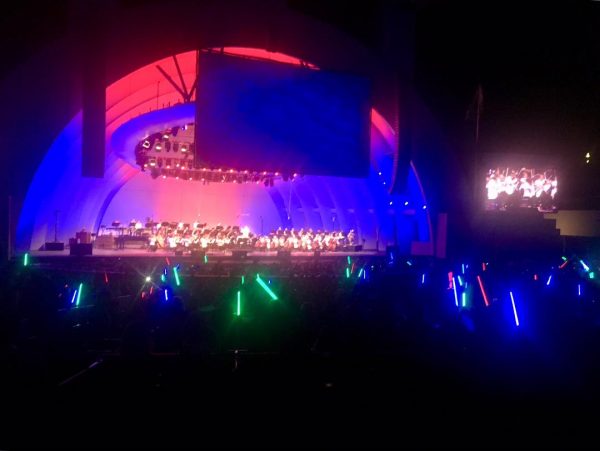Maybe life is about sitting under starry skies, watching the giants of Hollywood letting us in on their secrets and generously sharing their genius, making us feel we’re part of their world, a part of something greater. At least, that’s how I felt last Sunday at the Hollywood Bowl where 17,000 people celebrated the 86-year old Maestro John Williams conducting the Los Angeles Philharmonic Orchestra playing his film scores – compositions that changed the way we watch movies forever.
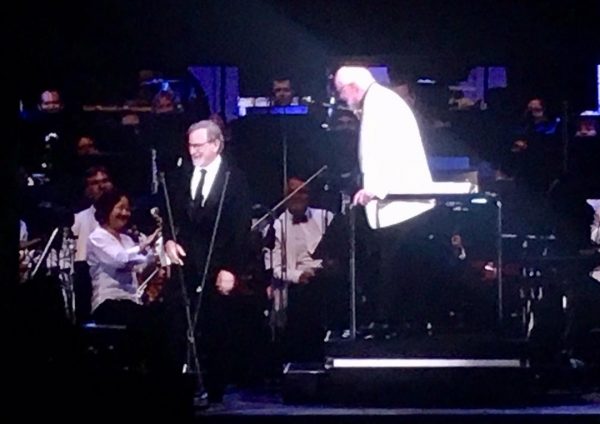
To introduce John Williams to American audiences would be like introducing Mozart to Austrians. Everyone knows the theme of Star Wars — it could be considered “the secret anthem of America” — at least by many “Star-Spangled Banner” lyric-challenged citizens. They might prefer hearing the Star Wars anthem before an event and just hum along to “A long time ago in a galaxy far, far away…” It’s Williams’ track record of composing fine music that people enjoy listening to that brings them to the traditional end-of-summer concerts in the Hollywood Bowl, where people party as if it were still the ‘60s. It’s not one of the popular Bowl-sing-alongs when John Williams conducts the Los Angeles Philharmonic Orchestra and the film clips dash on the oversized screens, but it’s the cleanest fun one can have with a plastic lightsaber. Waving them in rhythm while he conducts “Star Wars” selections transports the rows into a sea of green, red and blue neon lights.
.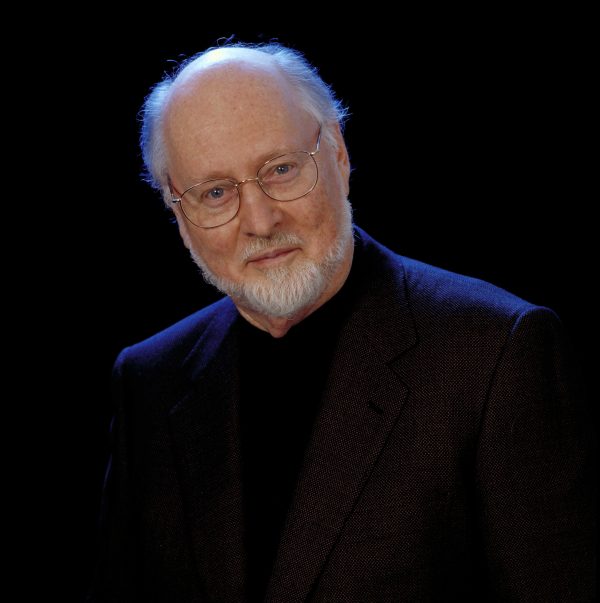
Tonight, the Maestro not only looked great, healthy and invigorated; when he conducted, his hands flew like feathers in the wind. It was the 40th anniversary of Williams’ Bowl debut, and possibly his last time at the conductor’s podium. He’d recently announced that the score to JJ Abrams’ Star Wars: Episode IX will be his final contribution to the “Star Wars” franchise. Williams did announce he will be writing the music to Spielberg’s next Indiana Jones sequel, and although he didn’t mention any plans for his retirement, given his age, traveling might not be in his future.
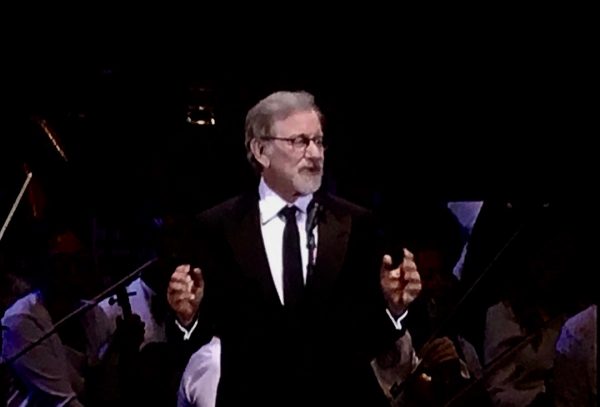
Maverick director Steven Spielberg was with him on stage to introduce five pieces that sprang from their collaboration, which began in 1973 with The Sugarland Express. Seventeen of Williams’ record fifty-one Oscar nominations were for Spielberg movies, and of the five Oscars Williams has won, three were for Spielberg movies (Jaws, E.T., The Extra -Terrestrial and Schindler’s List). No wonder Spielberg calls his work with Williams “the best creative collaboration of my whole career.” Tonight, Williams opened the Spielberg scores with “With Malice Toward None” from Lincoln (2012), followed by a hilarious trip behind-the-scenes of “The Circus Train Chase” from Indiana Jones and the Last Cruisade (1989). The first clip showed the 6-minute scene with River Phoenix without Williams’ music, and it seemed to last forever. When the boredom reached its climax, Spielberg took pity on the audience and promised a much faster experience with the film score. And so, it was. Now, River’s nimble moves matched the music and his performance kept us on the edge of our seats. Well done, movie magicians!
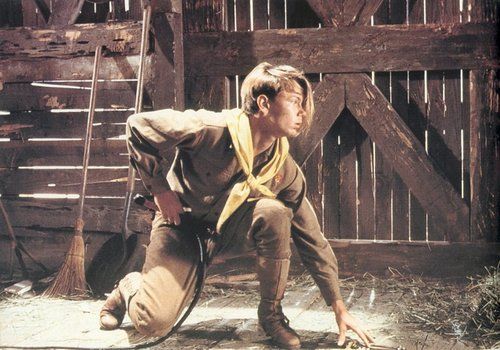
The enjoyment went on with the dueling scene from The Adventures of Tintin, set against a fun montage of swashbuckling scenes from dozens of classic pirate movies starring Errol Flynn, Tyrone Power, Stewart Granger and, of course, Johnny Depp as Captain Sparrow. John Williams, the most famous composer in Hollywood history (and a Catholic) also gifted the world with one of the most heartfelt violin compositions of the twentieth century: The theme to Spielberg’s Holocaust movie, Schindler’s List. It was performed by Los Angeles Philharmonic soloist Bin Wang. The piece touched 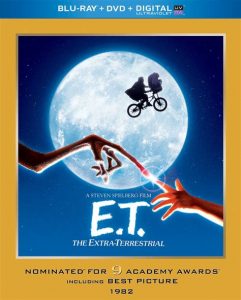 not only mature audiences; many hardcore Star Wars fans searched for their hankies as well. Steven Spielberg, with obvious emotion in his voice, lauded the Maestro: “This is one of the most stunningly evocative gifts that John has ever given us.” And then, on a lighter note, he introduced the clip and music of the Finale from E.T, The Extra-Terrestrial, saying: “I can direct bicycles to fly, but music truly makes them airborne!”
not only mature audiences; many hardcore Star Wars fans searched for their hankies as well. Steven Spielberg, with obvious emotion in his voice, lauded the Maestro: “This is one of the most stunningly evocative gifts that John has ever given us.” And then, on a lighter note, he introduced the clip and music of the Finale from E.T, The Extra-Terrestrial, saying: “I can direct bicycles to fly, but music truly makes them airborne!”
It made sense that this year, with nearly all of the program’s movie-score selections originating from Spielberg films, that the “Star Wars” themes were left for the encores. Williams played “The Rebellion Is Reborn” from 2017’s The Last Jedi, the original “Star Wars” theme, and the “Imperial March” from The Empire Strikes Back. While the light sabers illuminated the night and the music elevated the collective soul of the audience, the Maestro, responsible for this unique, unforgettable, and magical experience, left the podium after his performance as humble and lithe as he entered. I knew I had witnessed greatness.
